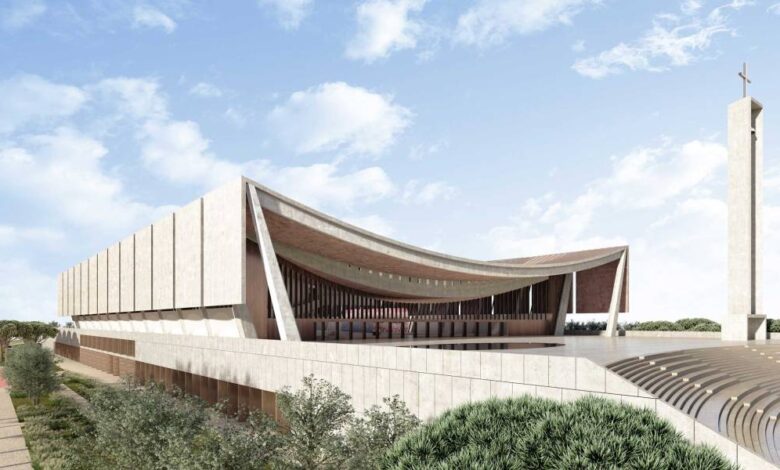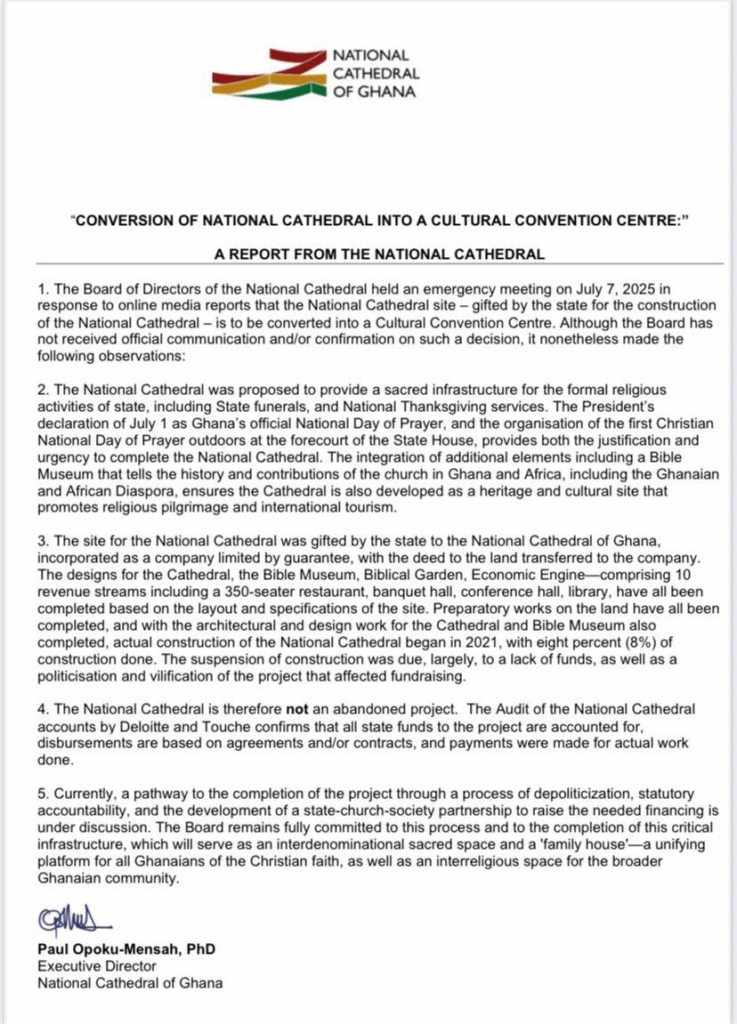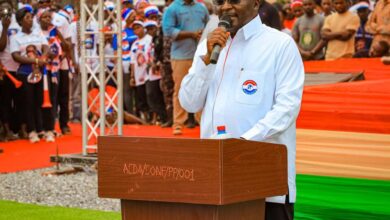We’ve received no directive to turn Cathedral into Cultural Centre – Board

The Board of Directors of the National Cathedral of Ghana has debunked viral online reports suggesting that the site allocated for the construction of the National Cathedral is being converted into a cultural convention centre.
The Executive Director Paul Opoku-Mensah, the Board disclosed that it held an emergency meeting to address the speculation In a statement dated July 7, 2025, and signed by
While no official communication had been received confirming any such conversion, the Board deemed it necessary to respond publicly.
“Although the Board has not received official communication and/or confirmation on such a decision, it nonetheless made the following observations,” the statement read.
The National Cathedral, they said, was always intended to serve as a sacred national infrastructure for major religious events, including State funerals, national thanksgiving services, and prayer days.
“The President’s declaration of July 1 as Ghana’s official National Day of Prayer… provides both the justification and urgency to complete the National Cathedral,” the Board noted.
They emphasized that the site was designed to include not just the Cathedral but also a Bible Museum, a Biblical Garden, and a Christian heritage space for the Ghanaian and African diaspora.
The report also cleared the air about the ownership of the land.
“The site for the National Cathedral was gifted by the state… with the deed to the land transferred to the company,” the Board clarified.
It added that the project included plans for income-generating facilities such as a 350-seater restaurant, a banquet hall, a library, and a conference centre.
All designs and preparatory works have reportedly been completed.
Contrary to public opinion that the Cathedral has been abandoned, the Board asserted:
“The National Cathedral is therefore not an abandoned project. The Audit of the National Cathedral accounts by Deloitte and Touche confirms that all state funds… are accounted for.”
They blamed the halt in construction, which began in 2021, on limited funding, public politicisation, and sustained vilification of the project.
“Currently, a pathway to the completion of the project through a process of depoliticisation… is under discussion,” the Board stated.
They reaffirmed their commitment to completing what they describe as a “unifying platform for all Ghanaians of the Christian faith, as well as an interreligious space for the broader Ghanaian community.”






